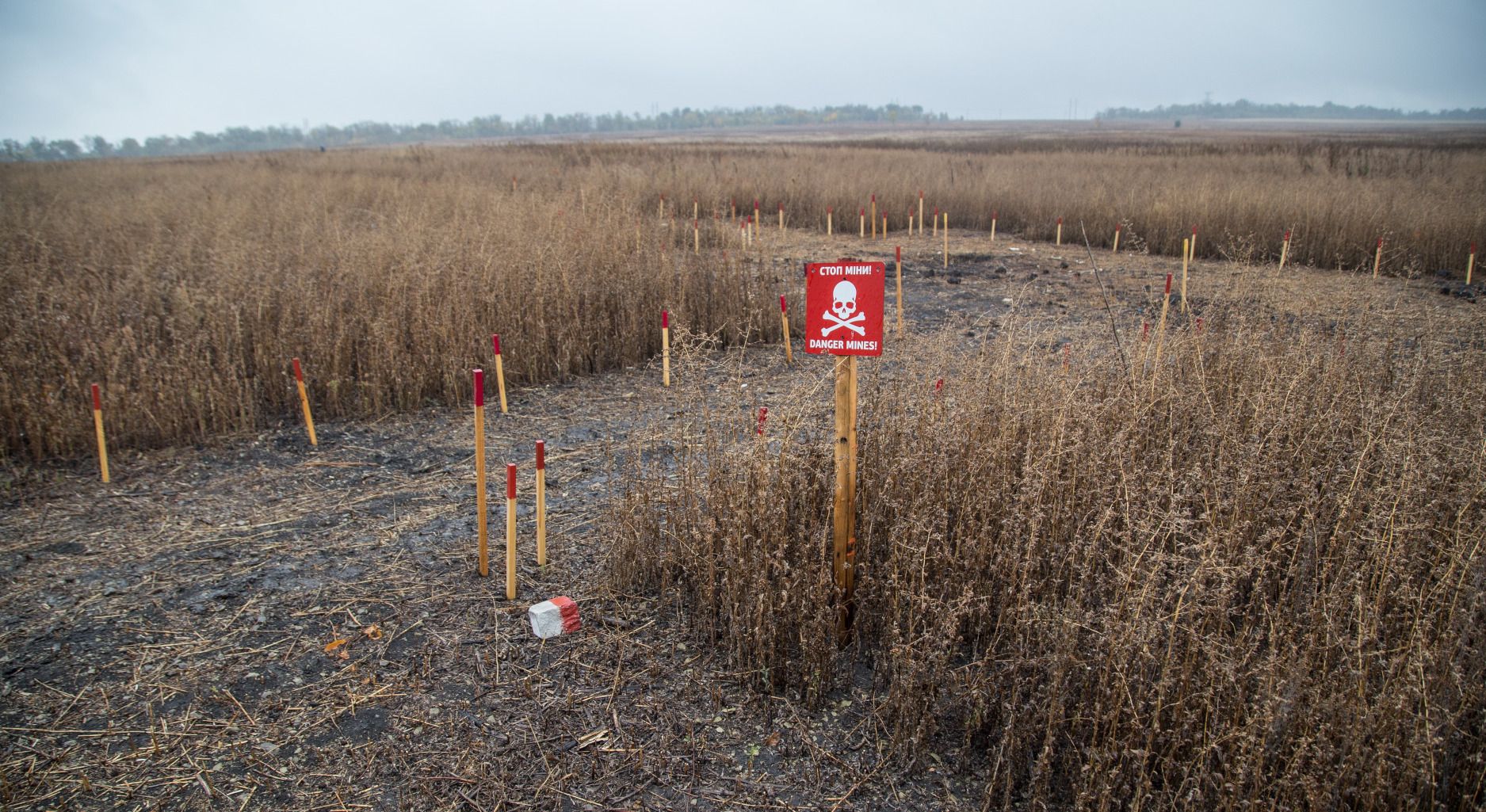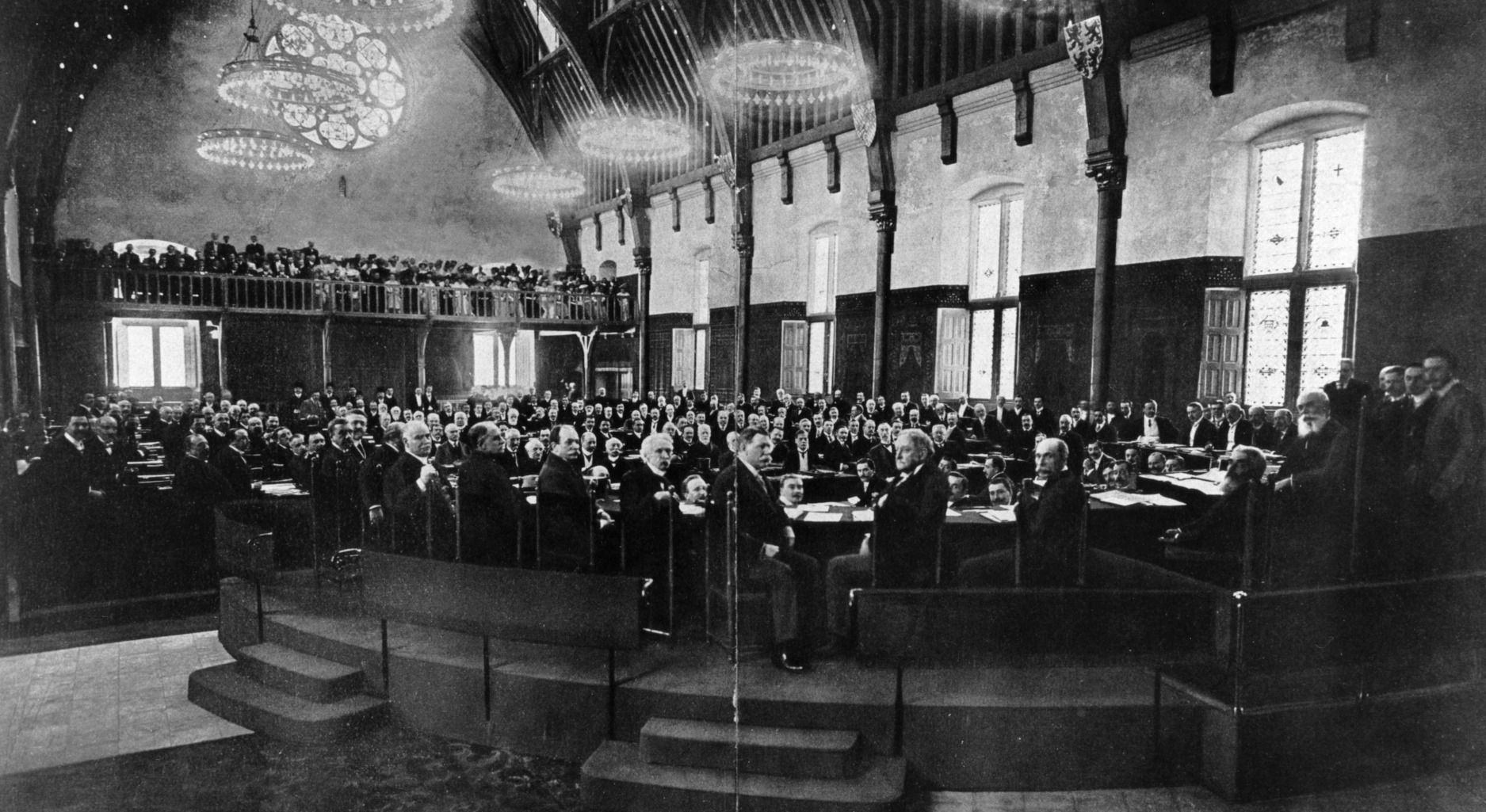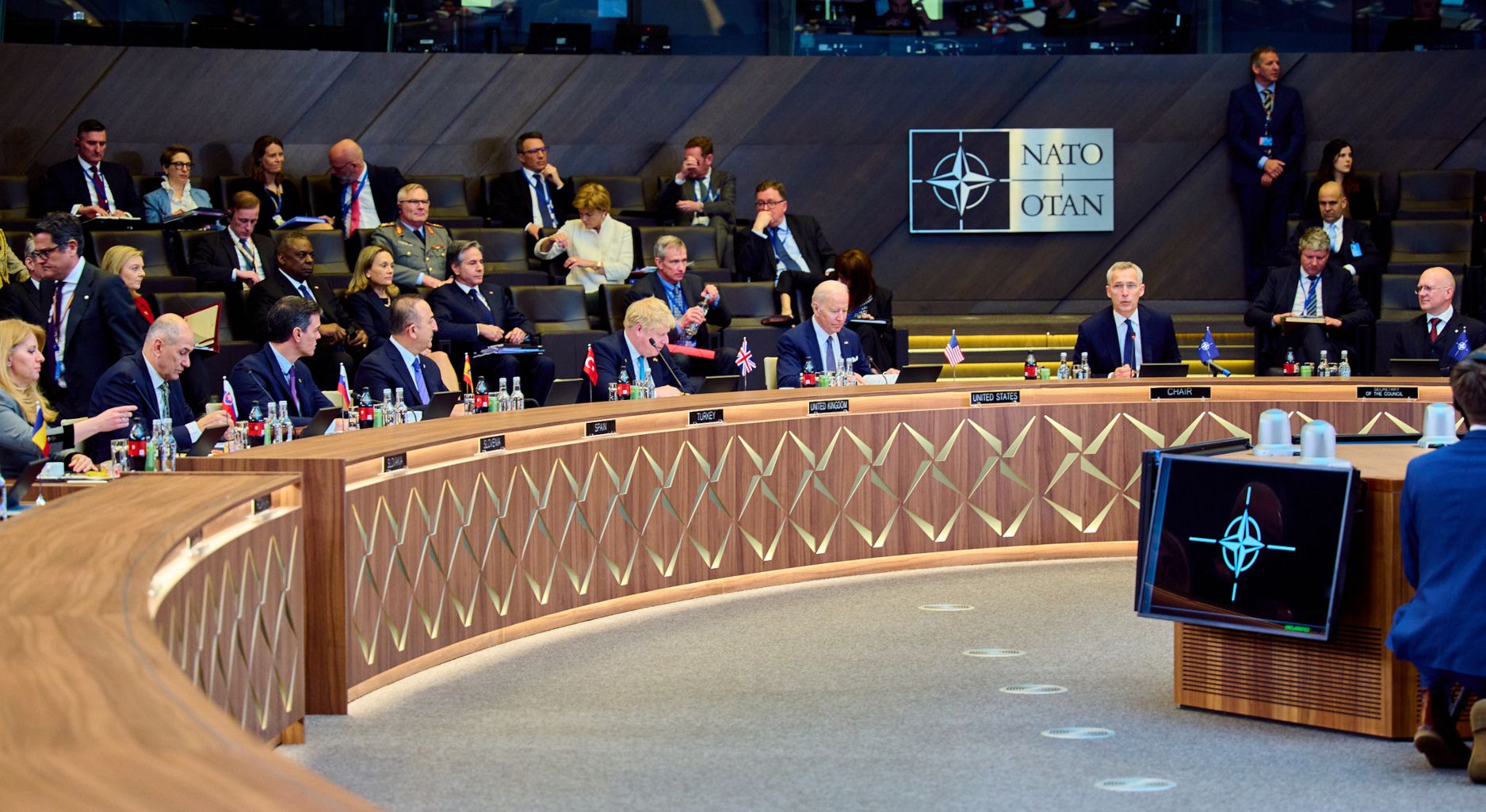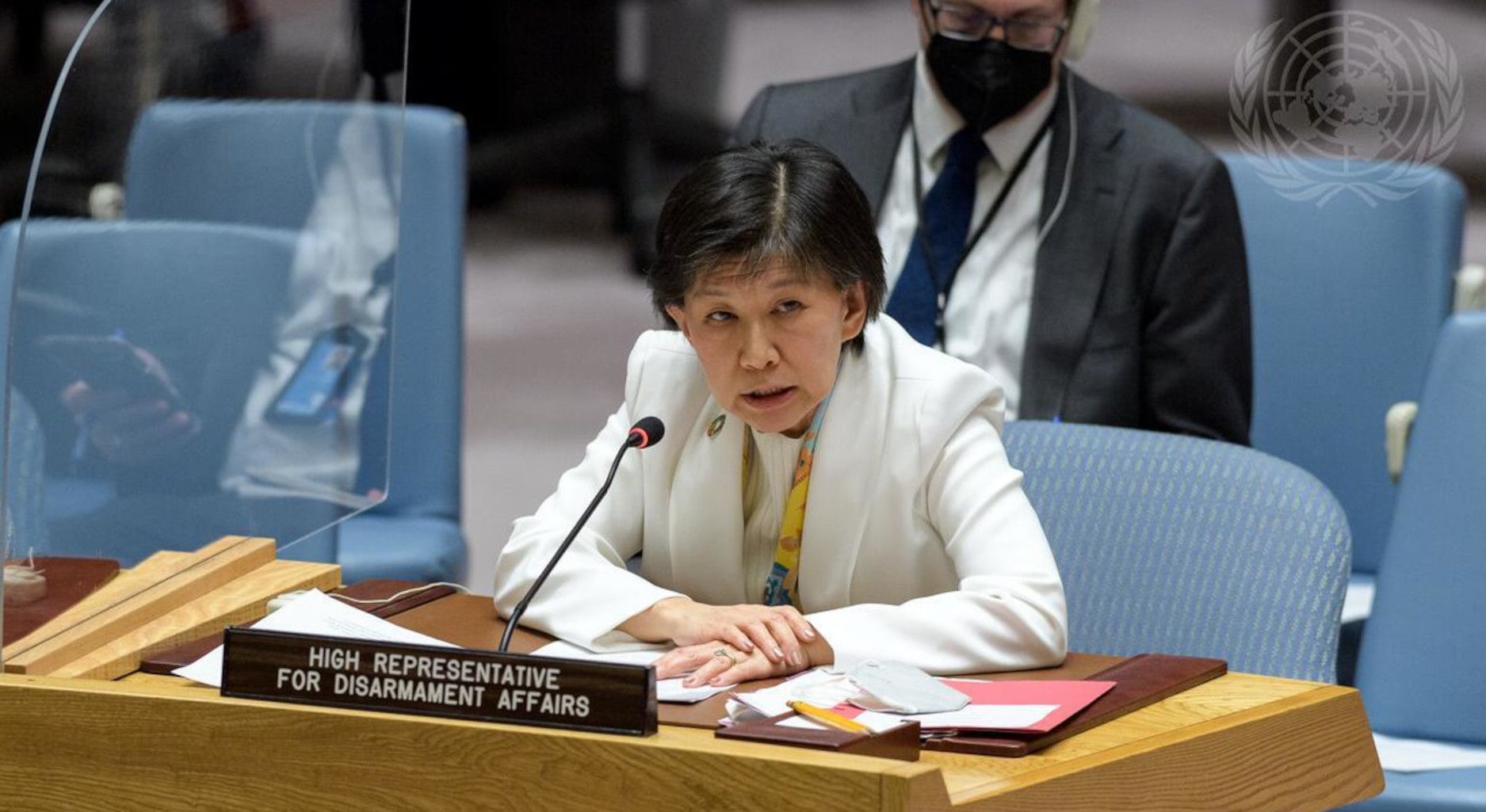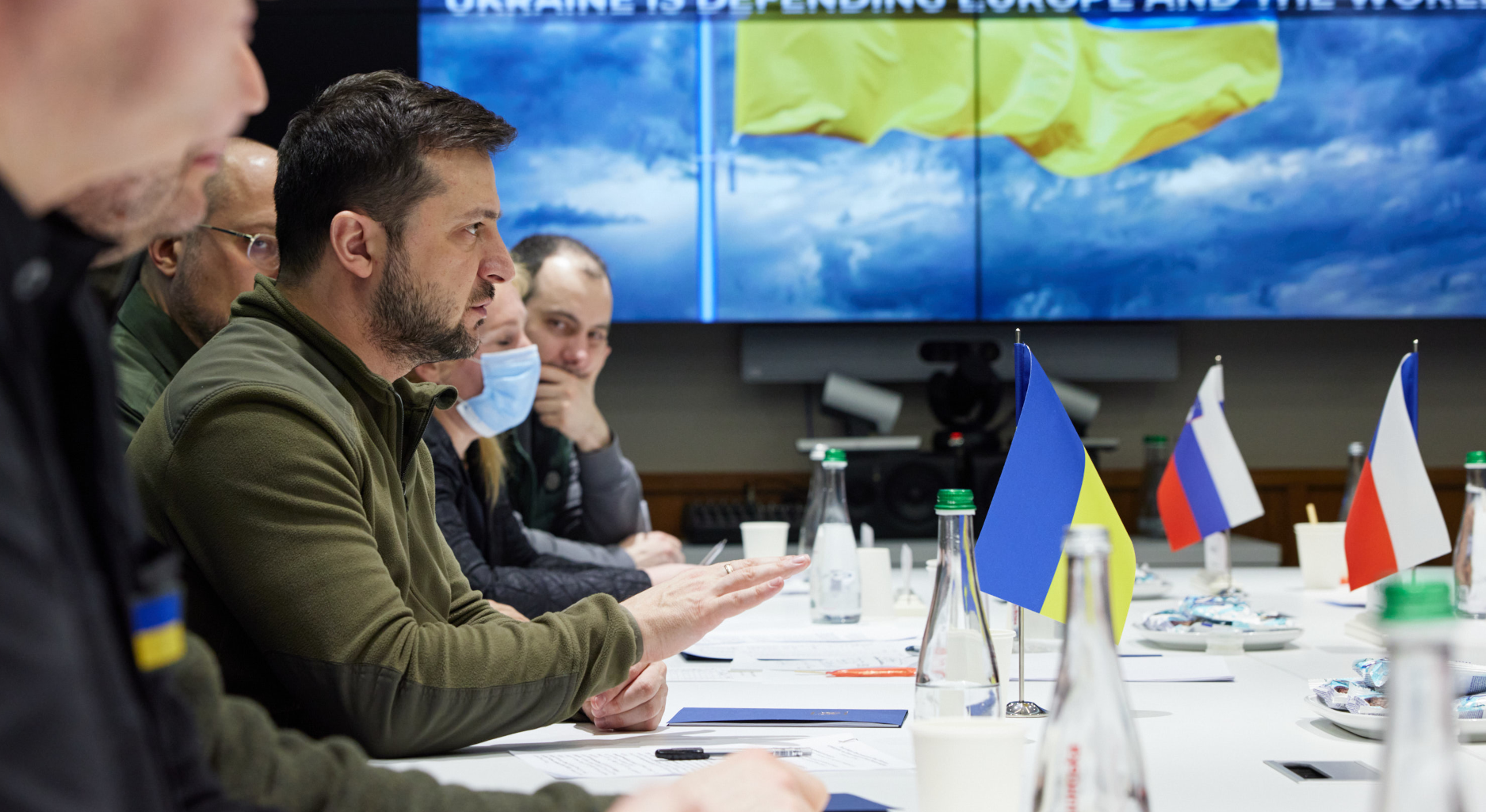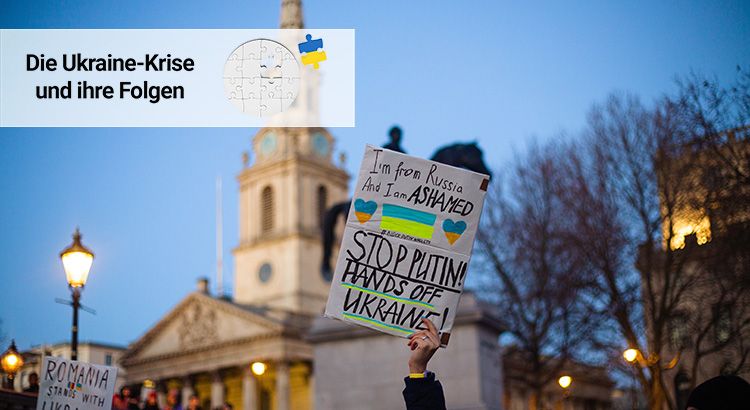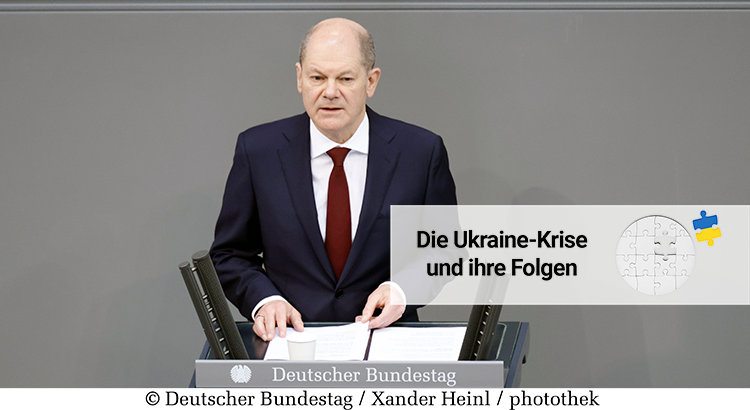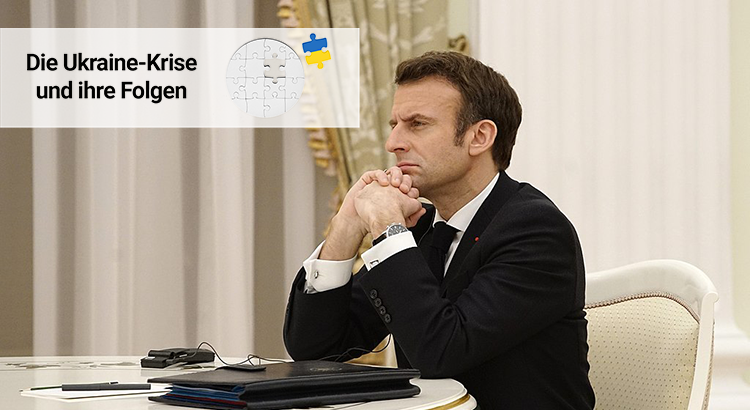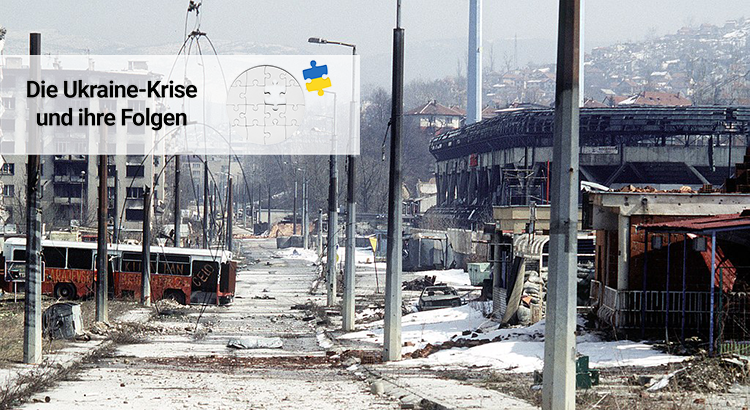Schlagwort: Russland
Die Bilder der geflüchteten Menschen an den Grenzen der Europäischen Union prägen erneut die täglichen Nachrichten. Mehr als vier Millionen Menschen sind in und aus der Ukraine vor den russischen Angriffen geflüchtet. Doch selbst die Fluchtrouten sind gefährlich. Nicht nur greifen russische Truppen die Flüchtlingskonvois gezielt aus der Luft und vom Boden aus an. Es mehren sich auch Medienberichte und Berichte von Nicht-Regierungsorganisationen wie Amnesty International und Human Rights Watch, dass Fluchtrouten von russischer Seite mit Anti-Panzerminen ausgestattet und so nur unter höchster Lebensgefahr für Menschen in Fahrzeugen zu passieren sind.
Assistance to Ukraine: Moving away from the neutrality paradigm
The Ukrainian government has requested other states to provide military material, which Germany and other states have acted on. Russia asserts that states making such deliveries are involving themselves in the conflict and would regard such deliveries as military targets and treat them accordingly. Targeting vessels carrying such deliveries is using force against the state sending these materials, which is not allowed unless a state becomes a party to the conflict. Consequently, it is important to determine when a state is no longer neutral and what the difference is between not being neutral and becoming a party to the conflict.
Szenarien eines Kriegseintritts des Westens
Gibt es eine Situation, in der es für den Westen gerechtfertigt oder sogar geboten sein könnte, in den Krieg zwischen Russland und der Ukraine militärisch einzugreifen? Man muss wissen, dass dieses Eingreifen höchstwahrscheinlich eine Ausweitung des Krieges auf ganz Europa und die Eskalation zu einem weltweiten Nuklearkrieg bedeuten würde. Präsident Putin hat deutlich gemacht, dass er vor dem Einsatz von Nuklearwaffen nicht zurückschrecken würde. Seine Warnungen sind deutlich und glaubhaft.
Der Hund, der nicht bellt: Cyber-Operationen im Ukraine-Krieg
Staaten und internationale Organisationen wie die NATO und die EU begreifen Cyberangriffe als zentrale sicherheitspolitische und militärische Bedrohung und bereiten sich seit Jahren auf derartige Szenarien vor. Die sicherheitspolitische Fachwelt sieht in Russland einen besonders aggressiven Akteur im Cyberraum und rechnete damit, dass die Führung in Moskau Cyberangriffe gegen kritische Infrastrukturen ihrer Gegner im Vorfeld von und parallel zu kinetischen militärischen Operationen durchführen würde. Verglichen mit diesen Erwartungen sehen wir im russischen Krieg gegen die Ukraine bisher nur wenig Anzeichen für solche Angriffe aus dem digitalen Raum.
Russian allegations of biological weapons activities in Ukraine
Russia has accused Ukraine of working on biological weapons, with the support of and the United States and Germany of providing support. These allegations are unfounded. There are no indications of such activities, which would be prohibited by the 1972 Biological Weapons Convention (BWC). Germany, the Russian Federation, Ukraine and the United States are BWC states parties. NATO and Western countries have voiced concerns that Russia may use these allegations as pretext to employ chemical weapons in the war against Ukraine.
Schießen und verhandeln – in vielen Konflikten kein Gegensatz
Schon kurz nach dem Überfall auf die Ukraine begannen die Kriegsparteien zu verhandeln. Viele Kommentare kritisierten, es passe nicht zusammen, zu verhandeln und gleichzeitig zu schießen. Ein einflussreicher Forschungsstrang in der Politikwissenschaft widerspricht dem. Ihm zufolge fassen viele Konfliktparteien Krieg als Teil des Verhandelns auf. Begreift man das vor allem als erschreckende Beobachtung und weniger als zynische Politikempfehlung, dann wird verständlicher, warum viele Verhandlungen erst spät oder nie zu einem Ende des Krieges führen.
Antirussische Ressentiments geben Putin Rückenwind
Wie Wladimir Putin sich im Angriffskrieg auf die Ukraine über Völkerrecht, rationale Abwägungen und nicht zuletzt den Wert des Lebens und friedlicher Koexistenz hinwegsetzt, macht auch hierzulande viele Menschen fassungslos, traurig und wütend. Dazu gesellt sich zunehmend Angst: Welche Gefahren gehen von Atomkraftwerken im Kriegsgebiet aus? Wird Putin nukleare Waffen einsetzen? Und lässt dieser Krieg sich noch eindämmen, oder ist er erst ein Auftakt? Neben solchen verständlichen Sorgen hat Putins Überfall auf die Ukraine hierzulande auch zusehends gefährliche Emotionen mobilisiert, nämlich pauschal antirussische Ressentiments. Sie verkennen den Verlauf der Frontlinien und gefährden basale Friedensbedingungen.
Wer im falschen Film spielt, den bestraft das Leben
Zeitenwende – aber wohin? Der Kanzler hat den Einmarsch von Putins Russland in die Ukraine eine Zeitenwende genannt. Wohin sich die Zeit gewendet hat, ist umstritten. Manche reden von einer „Rückkehr in den Kalten Krieg“. Andere fürchten ein „neues 1914“. Andere sehen uns in einer „beispiellosen neuen Umwelt“. Alle diese „Analysen“ sind falsch.
France and the Russian-Ukrainian conflict: an analysis of Macron’s diplomatic efforts
Since December 2021, French President Emmanuel Macron and his Russian counterpart Vladimir Putin have spoken fourteen times, including during the former’s visit to Moscow. Among western leaders, Macron has been one of the few to keep diplomatic channels open with Russia, even after the invasion of Ukraine. This not only shows France’s foreign policy activism but also hints at Paris’s pivotal role in finding a negotiated solution to the current war. Analyzing Macron’s discourse during his latest visit to Moscow can therefore yield some interesting insights on how he intends to deal with Europe’s most reckless neighbor, Russia.
Blick zurück nach vorn: Was droht bei einer Belagerung ukrainischer Städte?
Bei ihrem Überfall auf die Ukraine sind die russischen Truppen auf größeren Widerstand gestoßen als von ihrer Führung offenbar erwartet. Kiew und andere Städte stehen weiterhin unter Kontrolle ukrainischer Kräfte. Wie das russische Militär darauf reagieren wird, ist offen. Möglicherweise sieht es zunächst von Versuchen ab, stark verteidigte Städte vollständig einzunehmen, und setzt stattdessen auf deren Belagerung, die mit massivem Beschuss einhergeht. Was dann den Menschen in Kiew und anderswo in unmittelbarer Zukunft droht, zeigt ein Blick zurück auf die Belagerungen von Sarajevo in Bosnien-Herzegowina sowie Ost-Ghouta und Aleppo in Syrien.
